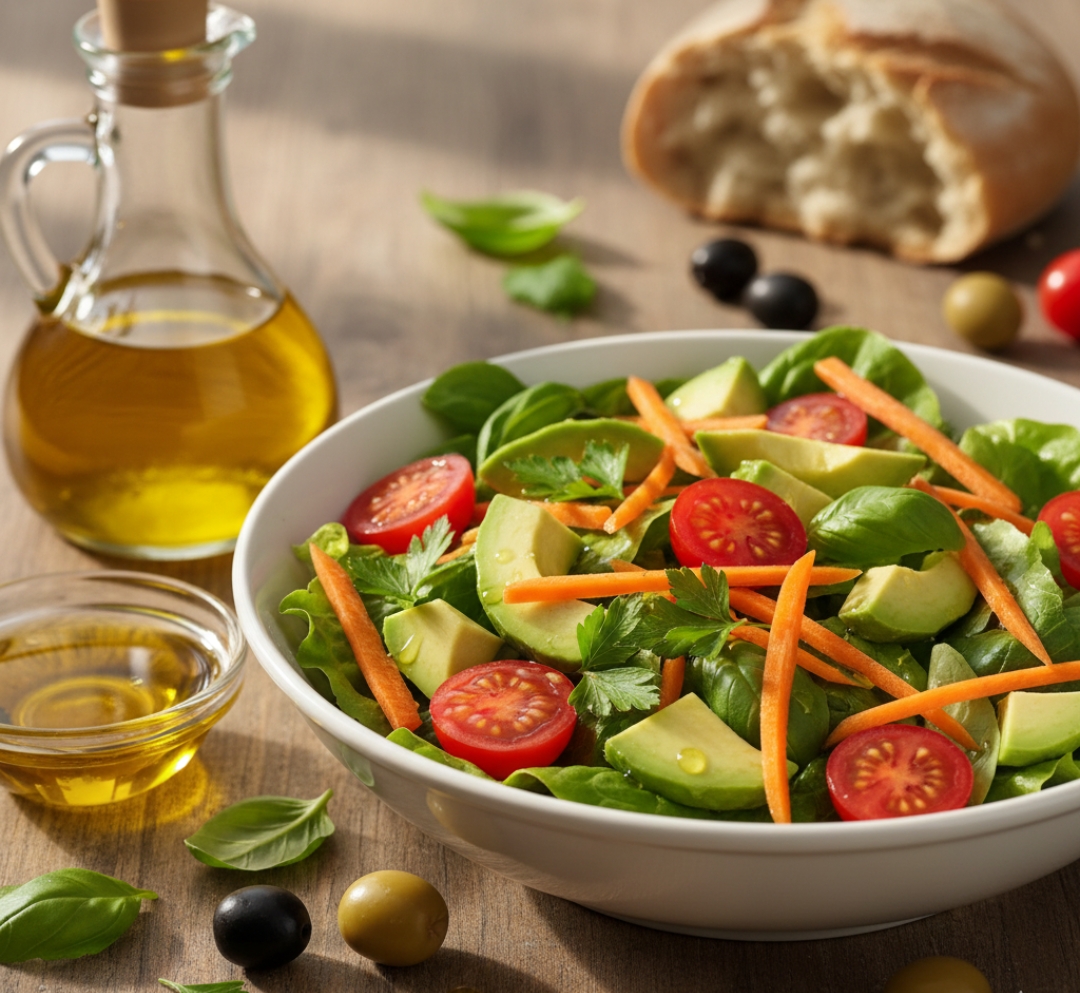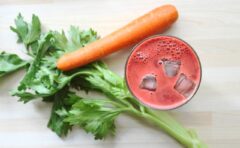Why Dryness Is a Year-Round Concern
Dryness isn’t something that only happens in winter — it can affect your skin throughout the year.
As I mentioned in a previous post, even after sun exposure, the skin becomes inflamed and dehydrated.
In fact, summer can be one of the driest seasons for your skin.
Prolonged exposure to UV rays damages the skin’s barrier, leading to loss of moisture and elasticity.
Dryness isn’t just about “dry skin.”
Fine lines, wrinkles, spots, dullness, rough texture, and enlarged pores — all of these can, at least in part, be traced back to dehydration.
When we were younger, a good moisturizer might have been enough to fix it.
But as the years go by, that simple approach no longer works, does it?
It means that if you only use rich creams but don’t hydrate from within, the effect is limited.
Approaching Dryness from Within
Caring for dry skin isn’t just about what you apply on the surface — it starts from within.
Topical care is important, but true hydration begins inside your body.
There are many ways to support your skin from the inside, but today I’d like to focus on one essential nutrient: Vitamin A.
Vitamin A plays a crucial role in protecting the skin and mucous membranes.
It strengthens the skin’s barrier, supports healthy cell turnover (which also requires zinc), and helps protect your entire system — from your throat to your digestive tract — from viruses.
It supports your immune system and prevents your lips and skin from becoming dry and flaky.
You can find Vitamin A in foods like carrots and other orange or green vegetables (β-carotene), as well as liver, eel, and sablefish (retinol).
Because it’s a fat-soluble vitamin, it’s best absorbed when eaten with a small amount of oil — for example, adding a drizzle of extra virgin olive oil to your carrot juice.
When Vitamin A is deficient, the skin’s mucous membranes can harden and lose moisture, making you more prone to allergies.
That’s why balance is key — supplements can help, but too much can also cause problems.
For an easy daily habit that helps keep the skin hydrated.
, try adding these to your meals:
- Tomatoes, rich in lycopene….. Protects skin from UV damage, Reduces oxidative stress, helping prevent dark spots and wrinkles, Brightens dull skin
- Avocados, rich in Vitamin E…… Helps maintain skin moisture / Keeps skin soft and supple / Rich in nutrients that promote a youthful appearance!!
There are many more foods that can nourish your skin, such as Vitamin-C…but remember — boosting your immunity and caring for your health are both parts of true beauty.
Start with what feels manageable for you, one step at a time.

Dry Skin Check
How do you know if your skin is struggling with dryness this summer? Here are a few signs to watch for:
✔︎ Your skin feels tight or rough
✔︎ You catch colds more easily
✔︎ You break out with pimples or acne
✔︎ Fine lines or wrinkles are becoming more noticeable
If any of these sound familiar, it could be a sign of Vitamin A deficiency.
Remember, Vitamin A isn’t just in carrots — it’s also in liver, eel, and egg yolks.

When Hormonal Imbalance Is the Cause
Sometimes, dryness isn’t just about nutrition — it can also be influenced by hormonal balance.
When your hormones fluctuate, your skin’s hydration and elasticity can be affected in noticeable ways.
Signs that hormones may be playing a role include:
✔︎ Irregular menstrual cycles
✔︎ Short or unstable luteal phase
✔︎ Increased irritability
✔︎ Mysterious breakouts along the jawline
✔︎ Persistent dryness
✔︎ Long-term swelling or puffiness
And later in life:
✔︎ Menopausal skin changes, such as reduced elasticity and uneven tone
If any of these apply, it’s essential to combine internal care for hormonal balance with external skincare.
As we age, our skin naturally loses firmness and moisture due to hormonal changes.
This makes diet and nutrition even more important — external skincare alone may not be enough.
For example, high-quality protein is essential for hormone production. Simply ensuring you get enough can make a noticeable difference in your skin.
- Fish, meat, and eggs provide nutrients critical for female hormones.
- Soy products (tofu, natto, dried tofu) are rich in isoflavones, which help balance hormones.
The key is not just eating these foods, but visualizing their nourishing effect as they reach your skin.
Think of it as a daily “hydration meditation” for your body.
For instance, I used to have a big breakfast, but after turning 50, I can’t eat as much in the morning.
In summer, I now have a kale-based smoothie (carrot, banana, pineapple) with a boiled egg on the side.
In winter, I enjoy a warm vegetable soup with green and orange vegetables.
Always keep in mind: it’s not just about what you eat — it’s about how you let your body absorb and benefit from it.
How to Touch Up Makeup Without Cracking the Skin
When you need to touch up your makeup during the day, it’s important to maintain moisture and avoid a “cracked” look.
Applying foundation or powder directly on dry skin can make your makeup flake and highlight fine lines. Not only does it look uneven, but it can also worsen dryness.
Here’s a method I personally use:
- Press a small amount of lotion or moisturizer into your skin before anything else.
- Use your palms to press and help it absorb gently.
- Apply concealer where needed after moisturizing.
- This way, your skin stays hydrated, and your makeup looks smoother and more radiant.

The key is simple: moisturize first, then apply makeup.
Even a small travel-sized container of lotion can make a big difference.
Collagen: Damaged by UV Rays and Decreasing Year by Year
Now, let’s talk about collagen — a key component that keeps your skin firm, elastic, and hydrated.
I’m not saying you should start eating only carrots like a rabbit .
Carrots are important, but they’re just one of many nutrients that support healthy skin.
Collagen and elastin — the fibers that give skin its strength and resilience — are easily damaged by UV exposure, and they naturally decrease as we age, especially after menopause.
While collagen helps prevent sagging and dryness by holding moisture in the skin, simply taking collagen supplements doesn’t automatically solve the problem.
I used to take collagen supplements. Some people find them effective, and that’s perfectly fine.
But after studying the body’s structure, skin physiology, and different types of imbalances, I realized there’s a more holistic way.
The key is to support your body in producing collagen naturally, through nutrition, timing, and proper skincare.
By understanding how your skin and body work together, you can protect them from stress and UV damage.
When we look deeper — at causes rather than symptoms — we discover that it’s not just about one product or nutrient.
It’s about the synergy of nutrition, timing, and mindful care.
Dryness leads to spots, wrinkles, and sagging — but when we care for both the inside (nutrition) and outside (skincare and makeup), we rebuild the foundation of our skin.
You can lighten dark spots, restore transparency, and bring back radiance through daily habits.
Never think, “I can’t.”
Every woman, at any age, has the right to be beautiful.
All you need is to find the approach that feels right for you.
Final Thoughts – Keep Your Skin Hydrated from the Inside Out
Dryness is not just a winter problem — it can affect your skin all year round.
Our body constantly loses moisture through sweat, air conditioning, and even stress.
That’s why daily inner care matters as much as skincare.
Simple habits such as:
- Drinking enough water,
- Getting enough sleep,
- Eating colorful vegetables,
can make a visible difference in your skin’s glow.
Remember, I’m not saying you should eat only carrots like a rabbit ..
What matters is balance — nurturing both your body and your mind.
Your skin reflects your inner state.
When you feel calm, nourished, and in balance, your skin naturally becomes more radiant.
So, take care of yourself with kindness every day — that’s the most beautiful skincare routine of all.
If you feel this is exactly your situation and you don’t know what to try next,I offer 1:1 online consultations to help you understand your skin, hormones, and habits more deeply.
